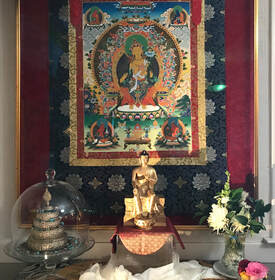
Taste of Buddhism
Tse Chen Ling developed Taste of Buddhism to be a potential first door for people who have an interest in Buddhism but not necessarily a desire to become Buddhist. By distilling the heart of Buddhism into accessible teachings that share methods to open the heart, cultivate calm, and develop compassion for ourselves and others, Taste of Buddhism shares the essence of the Dharma on the level of everyday experience.
Taste of Buddhism welcomed a variety of presenters who shared the practical experience of Buddhism in everyday language. Each talk ran 60-90 minutes, with a mixture of talk, meditation and Q&A.
Below is a list of the videos livestreamed in 2020-21. They are collected in the “Videos” section of our Facebook page. Browse the offerings and enjoy any and all of interest to you.
Tse Chen Ling developed Taste of Buddhism to be a potential first door for people who have an interest in Buddhism but not necessarily a desire to become Buddhist. By distilling the heart of Buddhism into accessible teachings that share methods to open the heart, cultivate calm, and develop compassion for ourselves and others, Taste of Buddhism shares the essence of the Dharma on the level of everyday experience.
Taste of Buddhism welcomed a variety of presenters who shared the practical experience of Buddhism in everyday language. Each talk ran 60-90 minutes, with a mixture of talk, meditation and Q&A.
Below is a list of the videos livestreamed in 2020-21. They are collected in the “Videos” section of our Facebook page. Browse the offerings and enjoy any and all of interest to you.
Past Virtual Taste of Buddhism Programs
Watch these videos on our Facebook Page

Endings and Beginnings: Approaching Transitions Gracefully
with Ven. Jampa Sangmo
Click HERE
As we approach the close of 2021, often celebrated with wishes for peace, lights, decorations, and gifts, we look towards 2022. Let’s ask what we will let go of and what wisdom we want to carry forward. Ven. Jampa Sangmo will share how and what we can learn from the Buddha to mark this transition with ritual, prayer and a plan.
with Ven. Jampa Sangmo
Click HERE
As we approach the close of 2021, often celebrated with wishes for peace, lights, decorations, and gifts, we look towards 2022. Let’s ask what we will let go of and what wisdom we want to carry forward. Ven. Jampa Sangmo will share how and what we can learn from the Buddha to mark this transition with ritual, prayer and a plan.

The Benefits of Gratitude: Why, When, and How to Practice It
with sujatha baliga
Click HERE
Western scientific studies have shown that feeling gratitude for our blessings increases mental wellbeing. Buddhist psychology describes a similar phenomenon, called the power of appreciation. In this talk and meditation, we’ll practice building the habit of appreciating the good things in our lives, with a special focus on the important role others play in our happiness.
with sujatha baliga
Click HERE
Western scientific studies have shown that feeling gratitude for our blessings increases mental wellbeing. Buddhist psychology describes a similar phenomenon, called the power of appreciation. In this talk and meditation, we’ll practice building the habit of appreciating the good things in our lives, with a special focus on the important role others play in our happiness.

Living a Good Life with Chronic Health Conditions with Lennie Kronisch
Click HERE
Challenges to our health and our chosen lifestyle can occur at any age, but they don’t have to define who we are or limit our happiness. Contained within Buddhist teachings are many tools for facing and transforming hardships into important life lessons that can increase our options and enrich our lives. We will explore some of these in this brief talk and experiential meditation.
Click HERE
Challenges to our health and our chosen lifestyle can occur at any age, but they don’t have to define who we are or limit our happiness. Contained within Buddhist teachings are many tools for facing and transforming hardships into important life lessons that can increase our options and enrich our lives. We will explore some of these in this brief talk and experiential meditation.

Learning from Grief with Don Handrick
Click HERE
Grief is a natural reaction to loss. We all encounter it, whether it be the death of someone we love or the many other experiences of change and disappointment that occur all too frequently in our lives. Experiencing the worldwide pandemic is one such example. In this session we will examine grief in the context of Buddhist teachings and learn how we might truly grow from our encounters with one of life’s most difficult emotions.
Click HERE
Grief is a natural reaction to loss. We all encounter it, whether it be the death of someone we love or the many other experiences of change and disappointment that occur all too frequently in our lives. Experiencing the worldwide pandemic is one such example. In this session we will examine grief in the context of Buddhist teachings and learn how we might truly grow from our encounters with one of life’s most difficult emotions.
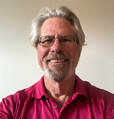
Family Matters with Richard Prinz
Click HERE
We’ll explore how Buddhist practices can enhance our relationships with others, starting with family. We are well-versed in the values of managing our stress and approaching situations with calm. In addition, in Tibetan Buddhism there is a premium placed on examining our own minds. We will look at ideas of attachment, beliefs, that may help or hurt, and whether the effects of our actions are in line with our intentions.
What if we could bring more self-compassion, curiosity and joy into our relations with others? What if we could skillfully deconstruct friend-enemy-stranger to realize everyone is just like us in wanting happiness and not wanting to suffer?
We can enhance our family experience by finding the time to kindly self-reflect on our own mental state and the effects we have on others.
Click HERE
We’ll explore how Buddhist practices can enhance our relationships with others, starting with family. We are well-versed in the values of managing our stress and approaching situations with calm. In addition, in Tibetan Buddhism there is a premium placed on examining our own minds. We will look at ideas of attachment, beliefs, that may help or hurt, and whether the effects of our actions are in line with our intentions.
What if we could bring more self-compassion, curiosity and joy into our relations with others? What if we could skillfully deconstruct friend-enemy-stranger to realize everyone is just like us in wanting happiness and not wanting to suffer?
We can enhance our family experience by finding the time to kindly self-reflect on our own mental state and the effects we have on others.
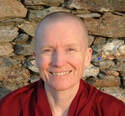
Why Become a Buddha? with Ven. Sangye Khadro
Click HERE
Each of us, without exception, has “Buddha Nature,” but it takes tremendous effort to develop it, so why should we do it? Ven. Sangye Khadro will encourage us to see the point of this wholehearted enterprise.
Click HERE
Each of us, without exception, has “Buddha Nature,” but it takes tremendous effort to develop it, so why should we do it? Ven. Sangye Khadro will encourage us to see the point of this wholehearted enterprise.

Is Meditation a Cure? with Scott Tusa
Click HERE
Modern meditation is often presented as a solution to our mental and emotional problems. Although there is some merit to this claim, as seen in countless individual meditators and a growing body of scientific studies, meditation can be much more than just a temporary solution to feeling stressed out.
Most meditation techniques provide some method for bringing our attention and awareness into the present moment. What happens when we attend to the present moment? If finding ease and spaciousness the goal?
With a mix of talk, meditation and time for Q&A, join Scott for an hour to explore how meditation can take us way beyond cures and solutions.
Click HERE
Modern meditation is often presented as a solution to our mental and emotional problems. Although there is some merit to this claim, as seen in countless individual meditators and a growing body of scientific studies, meditation can be much more than just a temporary solution to feeling stressed out.
Most meditation techniques provide some method for bringing our attention and awareness into the present moment. What happens when we attend to the present moment? If finding ease and spaciousness the goal?
With a mix of talk, meditation and time for Q&A, join Scott for an hour to explore how meditation can take us way beyond cures and solutions.
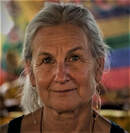
Celebrating Independence with Paula Chichester
Click HERE (First segment)
Click HERE (Second segment)
We Americans like our personal freedoms: freedom to live where we wish, buy whatever we want, take the intoxicants that we wish, to name just a few. But what is the meaning of "life, liberty and the pursuit of happiness" -- what actually makes us content, connected and joyful? How do we cultivate sustainable happiness?
What is it like to be totally free? When can you remember when you felt totally free? In moments of intense concentration or bliss, our sense of self is suspended; “the shell that binds me inside of myself is broken” and we feel we are suspended in ecstasy. Could we access this freedom anywhere, anytime? How?
Click HERE (First segment)
Click HERE (Second segment)
We Americans like our personal freedoms: freedom to live where we wish, buy whatever we want, take the intoxicants that we wish, to name just a few. But what is the meaning of "life, liberty and the pursuit of happiness" -- what actually makes us content, connected and joyful? How do we cultivate sustainable happiness?
What is it like to be totally free? When can you remember when you felt totally free? In moments of intense concentration or bliss, our sense of self is suspended; “the shell that binds me inside of myself is broken” and we feel we are suspended in ecstasy. Could we access this freedom anywhere, anytime? How?

Loving Our Parents, Loving Our Kids with Scott Snibbe
Click HERE
A short talk, meditation, and Q&A for Father’s Day about using meditation and mindfulness in skillfully relating to our parents and our kids, including the power of non-judgmental listening with our full attention.
Click HERE
A short talk, meditation, and Q&A for Father’s Day about using meditation and mindfulness in skillfully relating to our parents and our kids, including the power of non-judgmental listening with our full attention.
Standing in the River of Change Ven. Jampa Sangmo
Click HERE
We find ourselves in a historical time where the entire world has witnessed how quickly life can be transformed. As Covid 19 circulates the globe we all witness our interconnection and how we are dependent on the good will of others. Venerable Jampa Sangmo will share how the teachings of the Buddha can support us in navigating the waters of change at this time and how to utilize the wisdom from all the teachings to find peace.
Click HERE
We find ourselves in a historical time where the entire world has witnessed how quickly life can be transformed. As Covid 19 circulates the globe we all witness our interconnection and how we are dependent on the good will of others. Venerable Jampa Sangmo will share how the teachings of the Buddha can support us in navigating the waters of change at this time and how to utilize the wisdom from all the teachings to find peace.
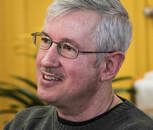
Faith and the Buddhist Path with Don Handrick
Click HERE
Faith can be misunderstood due to the negative connotations we’ve come to associate with it, especially when it's viewed as “blind” and not based in logic or actual experience. In this bite-size session we’ll examine the ways that faith is incorporated into Buddhist practice, looking at how our own intelligence and active participation in the spiritual journey
play an essential role in developing the confidence that fuels our growth and progress.
Click HERE
Faith can be misunderstood due to the negative connotations we’ve come to associate with it, especially when it's viewed as “blind” and not based in logic or actual experience. In this bite-size session we’ll examine the ways that faith is incorporated into Buddhist practice, looking at how our own intelligence and active participation in the spiritual journey
play an essential role in developing the confidence that fuels our growth and progress.
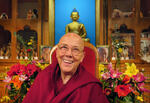
You're Not Stuck with the Brain You're Born With with Ven. Robina Courtin
Click HERE
It’s encouraging these days to hear scientists basically agreeing with what Buddha found from his own experience 2500-plus years ago: we can change our minds.
Yet Buddha’s view is even more radical. He says we can utterly rid our minds of the neuroses such as attachment, anger, fear and the rest. According to Buddhist psychology, they’re adventitious: they’re not at the core of our being.
We’re not talking about the brain but the actual cognitive process itself.
Tune in to get a taste of what we’d be like if we could achieve this, and how to get there.
Click HERE
It’s encouraging these days to hear scientists basically agreeing with what Buddha found from his own experience 2500-plus years ago: we can change our minds.
Yet Buddha’s view is even more radical. He says we can utterly rid our minds of the neuroses such as attachment, anger, fear and the rest. According to Buddhist psychology, they’re adventitious: they’re not at the core of our being.
We’re not talking about the brain but the actual cognitive process itself.
Tune in to get a taste of what we’d be like if we could achieve this, and how to get there.

Going Back To Normal... Whatever That Is with Lennie Kronisch
Click HERE
With the advent of widespread vaccinations, the return to “normal” life has begun. But, after a year of protective restrictions affecting our personal freedoms, our daily habits and routines, we may be surprised to discover benefits that lie waiting for each of us at the bottom of our most difficult times. More quality family time, a welcome simplicity and a slower pace are examples frequently reported. We can use adversity in our outer lives to make the harder changes within, pivoting to make informed choices that include these values in the way we reconstruct our lives. This is Buddhist practice in action.
Click HERE
With the advent of widespread vaccinations, the return to “normal” life has begun. But, after a year of protective restrictions affecting our personal freedoms, our daily habits and routines, we may be surprised to discover benefits that lie waiting for each of us at the bottom of our most difficult times. More quality family time, a welcome simplicity and a slower pace are examples frequently reported. We can use adversity in our outer lives to make the harder changes within, pivoting to make informed choices that include these values in the way we reconstruct our lives. This is Buddhist practice in action.

The Promise of Renewal with Ven. Jampa Sangmo
Click HERE
As we enter into the spring of 2021 we find ourselves in a different world. We have a new understanding driven by Covid 19 and the impactful issues of our time. In this session Venerable Jampa Sangmo will explore how to use our experience to celebrate and welcome new beginnings. She will share how Buddhist meditation teachings give us the foundation to be familiar with the potential and rewards of renewal.
Click HERE
As we enter into the spring of 2021 we find ourselves in a different world. We have a new understanding driven by Covid 19 and the impactful issues of our time. In this session Venerable Jampa Sangmo will explore how to use our experience to celebrate and welcome new beginnings. She will share how Buddhist meditation teachings give us the foundation to be familiar with the potential and rewards of renewal.

‘Who Are Those People?’: Opening our Hearts in Divided Times with sujatha baliga
Click HERE
As 2020 comes to a close, we in the United States find ourselves in a highly divided nation. Many of us are asking “who are those people?” about those who appear to be on the other side of the issues that impact our lives. During this Taste of Buddhism, we’ll explore how to open our hearts to the people we perceive to be on the other side. This session will help us to abandon the notion of “sides” and our nation’s current us/them framing of the difficulties we struggle with. We’ll see how it’s possible to remain committed to our own moral principles without rejecting the humanity of those who appear to violate them. We’ll grapple with what it means to have compassion for those who appear to be making unwise choices without developing arrogance towards or pity for those we disagree with.
Drawing from her own experiences facilitating restorative justice dialogues across seemingly unbridgeable divides, sujatha will close the session by guiding us through meditations which help us ask “who are those people?” with a genuine interest in the answer.
Click HERE
As 2020 comes to a close, we in the United States find ourselves in a highly divided nation. Many of us are asking “who are those people?” about those who appear to be on the other side of the issues that impact our lives. During this Taste of Buddhism, we’ll explore how to open our hearts to the people we perceive to be on the other side. This session will help us to abandon the notion of “sides” and our nation’s current us/them framing of the difficulties we struggle with. We’ll see how it’s possible to remain committed to our own moral principles without rejecting the humanity of those who appear to violate them. We’ll grapple with what it means to have compassion for those who appear to be making unwise choices without developing arrogance towards or pity for those we disagree with.
Drawing from her own experiences facilitating restorative justice dialogues across seemingly unbridgeable divides, sujatha will close the session by guiding us through meditations which help us ask “who are those people?” with a genuine interest in the answer.

How Things Exist with Scott Snibbe
Click HERE
The Buddhist view on reality, called emptiness, combines the awe of scientific knowledge with the inner, experiential knowledge that comes from meditation and critical reasoning to arrive at a feeling of interconnectedness. This is the first in a series of discussions with meditations exploring the Buddhist understanding of reality, beginning with an exploration of how objects can be analyzed in terms of their parts, focusing on an object of great attachment to us, our smartphone.
Click HERE
The Buddhist view on reality, called emptiness, combines the awe of scientific knowledge with the inner, experiential knowledge that comes from meditation and critical reasoning to arrive at a feeling of interconnectedness. This is the first in a series of discussions with meditations exploring the Buddhist understanding of reality, beginning with an exploration of how objects can be analyzed in terms of their parts, focusing on an object of great attachment to us, our smartphone.

The Myths We Live By with Karuna Cayton
Click HERE
This program is the fourth of four “episodes” in Karuna’s Taste of Buddhism series, The Myths We Live By. The four talks build on one another, but it is not necessary to see them all to get good flavor and benefit! The previous session can be viewed on our Facebook page after September 20th.
"We don't see what is there, and what we do see is not there" Geshe Gelek Chodha
In Buddhist philosophy and psychology all problems arise as a result of just one cause: not knowing how things really exist. This "not knowing" (ignorance) both misperceives how things are but then adds its own interpretation. These are "myths" it projects onto everything, every experience, every moment. We will look at several of the most predominant myths that essentially make us less healthy human beings. By knowing, first, that we are even hypnotized by wrong perception we can learn to integrate correct perception and develop a continual path of fulfillment."
Click HERE
This program is the fourth of four “episodes” in Karuna’s Taste of Buddhism series, The Myths We Live By. The four talks build on one another, but it is not necessary to see them all to get good flavor and benefit! The previous session can be viewed on our Facebook page after September 20th.
"We don't see what is there, and what we do see is not there" Geshe Gelek Chodha
In Buddhist philosophy and psychology all problems arise as a result of just one cause: not knowing how things really exist. This "not knowing" (ignorance) both misperceives how things are but then adds its own interpretation. These are "myths" it projects onto everything, every experience, every moment. We will look at several of the most predominant myths that essentially make us less healthy human beings. By knowing, first, that we are even hypnotized by wrong perception we can learn to integrate correct perception and develop a continual path of fulfillment."

Pearls of Buddhist Wisdom, Episode 2 with Lennie Kronisch
Click HERE
Buddhist philosophy and psychology are filled with gems of reasoning, logic and helpful advice for navigating the roller coaster of life. A veritable toolkit of methods to improve one’s mind and attitude towards problems is at our fingertips, eloquently phrased, accessible skillful means that lead to increased happiness.
In this talk, we will examine opening the way for looking at things differently from our habits and assumptions, with suggestions to begin loosening rigid thinking.
Click HERE
Buddhist philosophy and psychology are filled with gems of reasoning, logic and helpful advice for navigating the roller coaster of life. A veritable toolkit of methods to improve one’s mind and attitude towards problems is at our fingertips, eloquently phrased, accessible skillful means that lead to increased happiness.
In this talk, we will examine opening the way for looking at things differently from our habits and assumptions, with suggestions to begin loosening rigid thinking.

Sympathetic Joy: Opening Your Heart to the Happiness of Others with Scott Snibbe
Click HERE
Sympathetic joy is an easy-to-understand meditation practice that expands our love and compassion by rejoicing in all the good things that others did today. It counteracts greed, jealousy, and envy, and can be done kicking back on the couch at the end of a hard day.
Click HERE
Sympathetic joy is an easy-to-understand meditation practice that expands our love and compassion by rejoicing in all the good things that others did today. It counteracts greed, jealousy, and envy, and can be done kicking back on the couch at the end of a hard day.

The Myths We Live By with Karuna Cayton
Click HERE
This program is the third of four “episodes” in Karuna’s Taste of Buddhism series, The Myths We Live By. The four talks build on one another, but it is not necessary to see them all to get good flavor and benefit! The previous session can be viewed on our Facebook page after September 20th.
"We don't see what is there, and what we do see is not there"
Geshe Gelek Chodha
In Buddhist philosophy and psychology all problems arise as a result of just one cause: not knowing how things really exist. This "not knowing" (ignorance) both misperceives how things are but then adds its own interpretation. These are "myths" it projects onto everything, every experience, every moment. We will look at several of the most predominant myths that essentially make us less healthy human beings. By knowing, first, that we are even hypnotized by wrong perception we can learn to integrate correct perception and develop a continual path of fulfillment."
Click HERE
This program is the third of four “episodes” in Karuna’s Taste of Buddhism series, The Myths We Live By. The four talks build on one another, but it is not necessary to see them all to get good flavor and benefit! The previous session can be viewed on our Facebook page after September 20th.
"We don't see what is there, and what we do see is not there"
Geshe Gelek Chodha
In Buddhist philosophy and psychology all problems arise as a result of just one cause: not knowing how things really exist. This "not knowing" (ignorance) both misperceives how things are but then adds its own interpretation. These are "myths" it projects onto everything, every experience, every moment. We will look at several of the most predominant myths that essentially make us less healthy human beings. By knowing, first, that we are even hypnotized by wrong perception we can learn to integrate correct perception and develop a continual path of fulfillment."
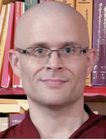
Turning the Mind Upside Down: Living a Life that Matters with Gyalten Lekden
Click HERE
On what is known as the Mahayana Buddhist path, we take as our aim that of the bodhisattva. Bodhisattvas selflessly dedicate themselves to free others from suffering, holding that responsibility as paramount. Yet the work of liberation, for self and others, is that of completely upending our conventional ways of engaging with the world and developing new outlooks and practices. That is work we have to do ourselves, no one can do it for us. In this talk, Ven. Gyalten Lekden will examine how the Buddhist tradition of mind training teachings can reorient our habitual way of being in the world in order to prioritize others, and simultaneously bring about personal peace and happiness.
Click HERE
On what is known as the Mahayana Buddhist path, we take as our aim that of the bodhisattva. Bodhisattvas selflessly dedicate themselves to free others from suffering, holding that responsibility as paramount. Yet the work of liberation, for self and others, is that of completely upending our conventional ways of engaging with the world and developing new outlooks and practices. That is work we have to do ourselves, no one can do it for us. In this talk, Ven. Gyalten Lekden will examine how the Buddhist tradition of mind training teachings can reorient our habitual way of being in the world in order to prioritize others, and simultaneously bring about personal peace and happiness.

Pearls of Buddhist Wisdom with Lennie Kronisch
Click HERE
Buddhist philosophy and psychology are filled with gems of reasoning, logic and helpful advice for navigating the roller coaster of life. A veritable toolkit of methods to improve one’s mind and attitude towards problems is at our fingertips, eloquently phrased, accessible skilfull means that lead to increased happiness. This talk will address the pitfalls of worry and blind faith, with suggestions to move through these challenges with more ease.
Click HERE
Buddhist philosophy and psychology are filled with gems of reasoning, logic and helpful advice for navigating the roller coaster of life. A veritable toolkit of methods to improve one’s mind and attitude towards problems is at our fingertips, eloquently phrased, accessible skilfull means that lead to increased happiness. This talk will address the pitfalls of worry and blind faith, with suggestions to move through these challenges with more ease.

Mindful Eating: Savoring the Holidays with Ritual & Food
with Ven Jampa Sangmo and Andrea Lieberstein
Click HERE
Since the beginning of time, humans have marked significant moments with food and community. As we approach the holiday season during this demanding period, Venerable Jampa and Andrea will share with you how to savor the holidays with compassion and gratitude. Particular attention will be given to evidence-based tools and practices of mindful eating and living. Included in their Taste of Buddhism will be meditation and Q&A.
Ven. Jampa and Andrea have presented through several Dharma centers in the Bay Area. They have led long or short sessions at, for example, Vajrapani Institute and Spirit Rock.
with Ven Jampa Sangmo and Andrea Lieberstein
Click HERE
Since the beginning of time, humans have marked significant moments with food and community. As we approach the holiday season during this demanding period, Venerable Jampa and Andrea will share with you how to savor the holidays with compassion and gratitude. Particular attention will be given to evidence-based tools and practices of mindful eating and living. Included in their Taste of Buddhism will be meditation and Q&A.
Ven. Jampa and Andrea have presented through several Dharma centers in the Bay Area. They have led long or short sessions at, for example, Vajrapani Institute and Spirit Rock.

Universalizing: Transforming Pain & Pleasure into Love & Compassion
with Scott Snibbe
Click HERE
One of the most powerful Tibetan Buddhist mind training techniques is universalizing, a practice that transforms everyday pains and pleasures into profound meditations. From arguing with the family to stuffing yourself with a delicious meal, life’s problems and pleasures can bring anger, guilt, and sadness. The meditation technique of “universalization” transforms our everyday experiences of pleasure and pain into engines of love and compassion.
with Scott Snibbe
Click HERE
One of the most powerful Tibetan Buddhist mind training techniques is universalizing, a practice that transforms everyday pains and pleasures into profound meditations. From arguing with the family to stuffing yourself with a delicious meal, life’s problems and pleasures can bring anger, guilt, and sadness. The meditation technique of “universalization” transforms our everyday experiences of pleasure and pain into engines of love and compassion.

The Myths We Live By with Karuna Cayton
Click HERE
This program is the second of four “episodes” in Karuna’s Taste of Buddhism series, The Myths We Live By. The four talks build on one another, but it is not necessary to see them all to get good flavor and benefit! The previous session can be viewed on our Facebook page after September 20th.
"We don't see what is there,
And what we do see is not there"
Geshe Gelek Chodha
As Karuna points out, in Buddhist philosophy and psychology all problems arise as a result of just one cause: not knowing how things really exist. This "not knowing" (ignorance) both misperceives how things are but then adds its own interpretation. These are "myths" it projects onto everything, every experience, every moment. In Buddhist thought there are many myths that are projected. In this series we will look at several of the most predominant myths that essentially make us less healthy human beings. By knowing, first, that we are even hypnotized by wrong perception we can then integrate correct perception and develop a continual path of fulfillment.
Click HERE
This program is the second of four “episodes” in Karuna’s Taste of Buddhism series, The Myths We Live By. The four talks build on one another, but it is not necessary to see them all to get good flavor and benefit! The previous session can be viewed on our Facebook page after September 20th.
"We don't see what is there,
And what we do see is not there"
Geshe Gelek Chodha
As Karuna points out, in Buddhist philosophy and psychology all problems arise as a result of just one cause: not knowing how things really exist. This "not knowing" (ignorance) both misperceives how things are but then adds its own interpretation. These are "myths" it projects onto everything, every experience, every moment. In Buddhist thought there are many myths that are projected. In this series we will look at several of the most predominant myths that essentially make us less healthy human beings. By knowing, first, that we are even hypnotized by wrong perception we can then integrate correct perception and develop a continual path of fulfillment.
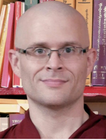
Why Worry? Buddhist Pragmatism in an Impractical World with Ven. Gyalten Lekden
Click HERE
We all have worries, some small, some big, from simple nagging concerns to debilitating panic attacks. The world around us, with what seems an ever-growing amount of uncertainty and tumult, often serves as the primary condition generating and perpetuating our worries, but since worry is an internal, emotional phenomena there needs to be a substantial, internal cause, too.
The teachings of Buddhism help us to recognize our worries and engage with them in a more constructive way, whether that be learning strategies to navigate and ameliorate them, or whether it be recognizing that, sometimes, there can be some benefit to be found in worry, especially when accompanied by compassion and discernment. In this edition of Taste of Buddhism, Ven. Gyalten Lekden will lead us in strategies that can help both to undermine the destructive power of worry and to accept and utilize the constructive power of worry in our daily lives.
Click HERE
We all have worries, some small, some big, from simple nagging concerns to debilitating panic attacks. The world around us, with what seems an ever-growing amount of uncertainty and tumult, often serves as the primary condition generating and perpetuating our worries, but since worry is an internal, emotional phenomena there needs to be a substantial, internal cause, too.
The teachings of Buddhism help us to recognize our worries and engage with them in a more constructive way, whether that be learning strategies to navigate and ameliorate them, or whether it be recognizing that, sometimes, there can be some benefit to be found in worry, especially when accompanied by compassion and discernment. In this edition of Taste of Buddhism, Ven. Gyalten Lekden will lead us in strategies that can help both to undermine the destructive power of worry and to accept and utilize the constructive power of worry in our daily lives.
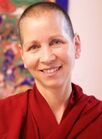
Acceptance and Forgiveness: Getting the Mind in Sync as a Path to Peace
with Venerable Amy Miller
Click HERE
When we refuse to accept negatives aspects of ourselves, we become rigid with others and many of life’s experiences. By turning toward this discomfort with curiosity, we can find realistic ways to open our hearts to our being human and begin the process of forgiving ourselves for the mistakes we make. The more natural flow that arises from this unhinging helps us explore our pain and anger toward others we don’t like. By considering their human nature as well, we can find more peaceful ways of dismantling their negative hold on us and release us from this cycle of suffering.
Ven. Amy will introduce a path of acceptance and forgiveness and include practical meditation and exercises that
can direct the mind in more positive ways.
with Venerable Amy Miller
Click HERE
When we refuse to accept negatives aspects of ourselves, we become rigid with others and many of life’s experiences. By turning toward this discomfort with curiosity, we can find realistic ways to open our hearts to our being human and begin the process of forgiving ourselves for the mistakes we make. The more natural flow that arises from this unhinging helps us explore our pain and anger toward others we don’t like. By considering their human nature as well, we can find more peaceful ways of dismantling their negative hold on us and release us from this cycle of suffering.
Ven. Amy will introduce a path of acceptance and forgiveness and include practical meditation and exercises that
can direct the mind in more positive ways.

The Myths We Live By with Karuna Cayton
Click HERE
Spreading out, once-a-month, Karuna Cayton will present a series of talks on the theme, “The Myths We Live By,” in our Taste of Buddhism format of talk—meditation – and discussion. The four talks build on one another, but it is not necessary to attend all four to get good flavor and benefit!
"We don't see what is there,
And what we do see is not there"
Geshe Gelek Chodha
As Karuna points out, in Buddhist philosophy and psychology all problems arise as a result of just one cause: not knowing how things really exist. This "not knowing" (ignorance) both misperceives how things are but then adds its own interpretation. These are "myths" it projects onto everything, every experience, every moment. In Buddhist thought there are many myths that are projected. In this series we will look at several of the most predominant myths that essentially make us less healthy human beings. By knowing, first, that we are even hypnotized by wrong perception we can then integrate correct perception and develop a continual path of fulfillment.
Click HERE
Spreading out, once-a-month, Karuna Cayton will present a series of talks on the theme, “The Myths We Live By,” in our Taste of Buddhism format of talk—meditation – and discussion. The four talks build on one another, but it is not necessary to attend all four to get good flavor and benefit!
"We don't see what is there,
And what we do see is not there"
Geshe Gelek Chodha
As Karuna points out, in Buddhist philosophy and psychology all problems arise as a result of just one cause: not knowing how things really exist. This "not knowing" (ignorance) both misperceives how things are but then adds its own interpretation. These are "myths" it projects onto everything, every experience, every moment. In Buddhist thought there are many myths that are projected. In this series we will look at several of the most predominant myths that essentially make us less healthy human beings. By knowing, first, that we are even hypnotized by wrong perception we can then integrate correct perception and develop a continual path of fulfillment.

What is Love? with Scott Snibbe
Click HERE
Love is complex in our culture, tied up with finding a perfect partner, a single person to satisfy our huge list of needs, dreams, and wishes, who we then grant the exclusive gift of our love, affection, attention, and time. But the Buddhist definition of love is simpler and more universal. Love is wanting others to be happy. We can cultivate this universal love through meditation, a love that encompasses strangers and even enemies. The result becomes an unshakeable foundation of happiness for both ourselves and others.
Click HERE
Love is complex in our culture, tied up with finding a perfect partner, a single person to satisfy our huge list of needs, dreams, and wishes, who we then grant the exclusive gift of our love, affection, attention, and time. But the Buddhist definition of love is simpler and more universal. Love is wanting others to be happy. We can cultivate this universal love through meditation, a love that encompasses strangers and even enemies. The result becomes an unshakeable foundation of happiness for both ourselves and others.

Anger vs Outrage with Venerable Gyalten Lekden
Click HERE
Injustice and suffering are not new to the world, and with more awareness and visibility than ever before, isn’t anger the appropriate response? Buddhism teaches us that there is never an instance of anger that is not non-virtuous, and hence always harmful. So, no, anger is never appropriate, never righteous. But isn’t anger that fire in our bellies, compelling us to fight for the dignity and equality of others? Shouldn’t we be nurturing those thoughts that are fueling us to work to relieve others’ suffering?
When looking at western explanations of anger through an understanding of Buddhist mind science we find an intricate web of simultaneous mental events that we group together as this nebulous concept of anger. In truth, anger is only one portion of that experience. Through exploring the mind we can learn to distinguish anger from outrage, and discover that fierce compassion that fuels our work to help others without harming ourselves in the process.
Click HERE
Injustice and suffering are not new to the world, and with more awareness and visibility than ever before, isn’t anger the appropriate response? Buddhism teaches us that there is never an instance of anger that is not non-virtuous, and hence always harmful. So, no, anger is never appropriate, never righteous. But isn’t anger that fire in our bellies, compelling us to fight for the dignity and equality of others? Shouldn’t we be nurturing those thoughts that are fueling us to work to relieve others’ suffering?
When looking at western explanations of anger through an understanding of Buddhist mind science we find an intricate web of simultaneous mental events that we group together as this nebulous concept of anger. In truth, anger is only one portion of that experience. Through exploring the mind we can learn to distinguish anger from outrage, and discover that fierce compassion that fuels our work to help others without harming ourselves in the process.
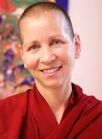
Why Is Life Such A Hassle? How to Cope with Venerable Amy Miller
Click HERE
The desire for happiness serves as a major motivation in our lives, yet we often experience numerous obstacles to achieving it. Despite our material comforts and beneficial circumstances, frustration, fear, anxiety, depression, along with other less than generous mind states, cloud our view. This talk explores a variety of healthy coping mechanisms that can help transform everyday challenges into a more realistic and peaceful experience.
Click HERE
The desire for happiness serves as a major motivation in our lives, yet we often experience numerous obstacles to achieving it. Despite our material comforts and beneficial circumstances, frustration, fear, anxiety, depression, along with other less than generous mind states, cloud our view. This talk explores a variety of healthy coping mechanisms that can help transform everyday challenges into a more realistic and peaceful experience.

Beyond Mindfulness with Scott Tusa
Click HERE
There are many ways to approach the practice of meditation. On the Buddhist path, meditation is a tool to uncover the true peace of our own inner awakened nature.
Here, the path of meditation is supported by a holistic view of our vast human potential, and made manifest through integrating this into our daily actions and conduct.
Rather than a “self-help” technique or a limited transactional method, Buddhist meditation aims to cultivate a relational awareness. One where the development of our own inner peace connects into a sense of belonging, responsibility and altruism towards others.
Through a combination of experiential learning and meditation, this session will explore the intersections of core Buddhist principles and our everyday lives, where integrative meditation practices meet the world around us.
Click HERE
There are many ways to approach the practice of meditation. On the Buddhist path, meditation is a tool to uncover the true peace of our own inner awakened nature.
Here, the path of meditation is supported by a holistic view of our vast human potential, and made manifest through integrating this into our daily actions and conduct.
Rather than a “self-help” technique or a limited transactional method, Buddhist meditation aims to cultivate a relational awareness. One where the development of our own inner peace connects into a sense of belonging, responsibility and altruism towards others.
Through a combination of experiential learning and meditation, this session will explore the intersections of core Buddhist principles and our everyday lives, where integrative meditation practices meet the world around us.

The Dalai Lama's "Simple Meditation" with Scott Snibbe
Click HERE
On the “Ten Percent Happier” podcast several weeks ago, The Dalai Lama described to Dan Harris a “simple meditation” for beginners. This guided meditation is an interpretation of the two meditations His Holiness recommends for the morning: meditating on the mind followed by meditating on the kindness of others.
Click HERE
On the “Ten Percent Happier” podcast several weeks ago, The Dalai Lama described to Dan Harris a “simple meditation” for beginners. This guided meditation is an interpretation of the two meditations His Holiness recommends for the morning: meditating on the mind followed by meditating on the kindness of others.

What's A Buddhist Therapist Got To Say? with Karuna Cayton
Click HERE
In this program we delve into modern day psychological questions - such as how emotional and psychological problems arise, what are their causes and how can we work with them -– with a Buddhist psychological approach. Since Buddhism offers a complete psychology there should be an explanation of how to deal with our emotional struggles such as anxiety, depression, regret and so on. While this session is not designed to actually solve these problems in 1-1/2 hours we can hopefully get a glimpse of how we can approach them from a Buddhist psychological perspective.
Click HERE
In this program we delve into modern day psychological questions - such as how emotional and psychological problems arise, what are their causes and how can we work with them -– with a Buddhist psychological approach. Since Buddhism offers a complete psychology there should be an explanation of how to deal with our emotional struggles such as anxiety, depression, regret and so on. While this session is not designed to actually solve these problems in 1-1/2 hours we can hopefully get a glimpse of how we can approach them from a Buddhist psychological perspective.

Surfing the Waves of Change with Lennie Kronisch
Click HERE
It is widely acknowledged that the typical reaction to change is aversion and resistance. We quickly become attached to what is pleasant and familiar, and grasp onto it tightly. That becomes our preference and when change threatens to disrupt that habitual pattern, we dig in and resist with all our might. This creates a suffering state of anxiety and fear that can color our every moment. We will explore the inevitability of change, how to become more comfortable with it, and to grow spiritually in the process.
Click HERE
It is widely acknowledged that the typical reaction to change is aversion and resistance. We quickly become attached to what is pleasant and familiar, and grasp onto it tightly. That becomes our preference and when change threatens to disrupt that habitual pattern, we dig in and resist with all our might. This creates a suffering state of anxiety and fear that can color our every moment. We will explore the inevitability of change, how to become more comfortable with it, and to grow spiritually in the process.
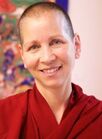
How Kindness is Contagious with Venerable Amy Miller
Click HERE
For many people, the sudden pause due to the Covid-19 Virus is causing some severe discomfort, fear, boredom, and loneliness. In a bid to protect ourselves, whether consciously or not, many of us tend to harden and become critical and impatient with our emotional processes. Our coping mechanisms may fall into judgment of self or others, or we may shut down. By responding in this way, an authentic dynamic flow of who we really are, along with our unique interconnectedness, gets blocked. Enjoy this “taste” to explore how being present with discomfort fuels a path through our pain, fear, aversion, and laziness to kindness for ourselves and others. Experience mindful self-compassion as not only a phenomenal tool for moving through these less than comfortable times, but also as a key to a deeper and more positive transformation overall.
Click HERE
For many people, the sudden pause due to the Covid-19 Virus is causing some severe discomfort, fear, boredom, and loneliness. In a bid to protect ourselves, whether consciously or not, many of us tend to harden and become critical and impatient with our emotional processes. Our coping mechanisms may fall into judgment of self or others, or we may shut down. By responding in this way, an authentic dynamic flow of who we really are, along with our unique interconnectedness, gets blocked. Enjoy this “taste” to explore how being present with discomfort fuels a path through our pain, fear, aversion, and laziness to kindness for ourselves and others. Experience mindful self-compassion as not only a phenomenal tool for moving through these less than comfortable times, but also as a key to a deeper and more positive transformation overall.

Spiritual Democracy with Scott Snibbe
Click HERE
In everyday life we’re torn between fierce attachment to our loved ones and anger at those that give us trouble. Buddhism, democracy, and social justice tell us that all people deserve the same rights and freedoms: we’re all equal, we all deserve happiness. But in everyday life we don’t always feel that way. The Buddhist concept of equanimity, applied to our everyday relationships and the painful daily news, teaches us a technique of “spiritual democracy” for developing healthy feelings of connection to others—even those we most despise.
Click HERE
In everyday life we’re torn between fierce attachment to our loved ones and anger at those that give us trouble. Buddhism, democracy, and social justice tell us that all people deserve the same rights and freedoms: we’re all equal, we all deserve happiness. But in everyday life we don’t always feel that way. The Buddhist concept of equanimity, applied to our everyday relationships and the painful daily news, teaches us a technique of “spiritual democracy” for developing healthy feelings of connection to others—even those we most despise.

Working With Anger with sujatha baliga
Click HERE
While some consider anger to be a uniformly negative emotion and something to be overcome on the Buddhist path, there are times and situations that call for righteous anger. In this session, we’ll practice coming closer to our anger, examining it and understanding when it serves positive outcomes and when it doesn’t. We’ll also engage in a meditation to help us see the present moment and our reactions to it—and from there transform only those which do not serve positive ends into actions that benefit ourselves and others to move forward.
Click HERE
While some consider anger to be a uniformly negative emotion and something to be overcome on the Buddhist path, there are times and situations that call for righteous anger. In this session, we’ll practice coming closer to our anger, examining it and understanding when it serves positive outcomes and when it doesn’t. We’ll also engage in a meditation to help us see the present moment and our reactions to it—and from there transform only those which do not serve positive ends into actions that benefit ourselves and others to move forward.

Building Peace- One Breath at a Time with Venerable Jampa Sangmo
Click HERE
Ancient meditative practices support us to live with wisdom, compassion, and ease. Science is discovering the many ways breath meditation can vitalize spiritual, emotional, metabolic, and cellular health. Venerable Jampa Sangmo will discuss mindfulness as a heart-focused practice that support us finding peace during these challenging times.
Click HERE
Ancient meditative practices support us to live with wisdom, compassion, and ease. Science is discovering the many ways breath meditation can vitalize spiritual, emotional, metabolic, and cellular health. Venerable Jampa Sangmo will discuss mindfulness as a heart-focused practice that support us finding peace during these challenging times.

Alone Together with Scott Snibbe
Click HERE
Millions are now faced with enforced solitude, while others, in the crush of families together all day, realize how much we needed that time alone we took for granted. The essence of meditation is getting to know yourself alone, without social stimulus, entertainment, or reputation—what we truly are deep inside ourselves. There, we can find in our mind a place of satisfaction that’s equally at ease when we’re alone or when we’re with others.
Click HERE
Millions are now faced with enforced solitude, while others, in the crush of families together all day, realize how much we needed that time alone we took for granted. The essence of meditation is getting to know yourself alone, without social stimulus, entertainment, or reputation—what we truly are deep inside ourselves. There, we can find in our mind a place of satisfaction that’s equally at ease when we’re alone or when we’re with others.

Cultivating the Courageous Heart with Don Handrick
Click HERE
While suffering can frequently overwhelm us, it is often in the midst of experiencing our vulnerability that we can actually find our deepest strength and courage. In this session we will explore tonglen, a meditation technique to help us work with the suffering of ourselves and others in order to transform whatever we meet into a source of greater resilience and confidence.
Click HERE
While suffering can frequently overwhelm us, it is often in the midst of experiencing our vulnerability that we can actually find our deepest strength and courage. In this session we will explore tonglen, a meditation technique to help us work with the suffering of ourselves and others in order to transform whatever we meet into a source of greater resilience and confidence.

Mothers: A Buddhist Perspective with Lennie Kronisch
Click HERE
Lennie talked about the unique importance of mothers in Buddhist practice and philosophy, honoring our own mothers, and taking the vast view of honoring all mothers throughout time. As the first universal experience that all living beings share, it is the basis of many teachings and insights.
Click HERE
Lennie talked about the unique importance of mothers in Buddhist practice and philosophy, honoring our own mothers, and taking the vast view of honoring all mothers throughout time. As the first universal experience that all living beings share, it is the basis of many teachings and insights.

What About ME?! Exploring the Self with Emily Hsu
Click HERE
According to Buddhism, the source of all our pain and problems is misunderstanding how the self exists. Freedom comes when we eradicate this misunderstanding and realize how the self actually exists. In this session we will explore the nature of the self, both intellectually and experientially.
Click HERE
According to Buddhism, the source of all our pain and problems is misunderstanding how the self exists. Freedom comes when we eradicate this misunderstanding and realize how the self actually exists. In this session we will explore the nature of the self, both intellectually and experientially.

Mental Cause and Effect with Scott Snibbe
Click HERE
Science has greater and greater mastery in understanding and controlling physical cause and effect, from planets to particles, but we are only starting to understand cause and effect in our minds. Evolution, habits, and society all affect our behavior. How do we gain conscious control of our behavior, much less our thoughts? There’s a meditative practice of self-appreciation, and self-forgiveness that can be done each day to help build a healthy, controlled mind that lets go of regret and pain and faces each day with renewed joy.
Click HERE
Science has greater and greater mastery in understanding and controlling physical cause and effect, from planets to particles, but we are only starting to understand cause and effect in our minds. Evolution, habits, and society all affect our behavior. How do we gain conscious control of our behavior, much less our thoughts? There’s a meditative practice of self-appreciation, and self-forgiveness that can be done each day to help build a healthy, controlled mind that lets go of regret and pain and faces each day with renewed joy.

The Resurrection of Love with Venerable Jampa Sangmo
Click HERE
Celebrating Bodhicitta and the Resurrection on Easter Sunday in this Pandemic year. Venerable Jampa Sangmo will be sharing her thoughts on Refuge, Bodhicitta and the Resurrection. She will talk about her personal journey to becoming a nun and how she has been influenced by her Jewish and Christian brothers and sisters.
Click HERE
Celebrating Bodhicitta and the Resurrection on Easter Sunday in this Pandemic year. Venerable Jampa Sangmo will be sharing her thoughts on Refuge, Bodhicitta and the Resurrection. She will talk about her personal journey to becoming a nun and how she has been influenced by her Jewish and Christian brothers and sisters.

Optimism in Uncertain Times with sujatha baliga
Click HERE
These days, it’s quite easy to spend hours on the internet searching for clarity about our present situation. Instead, we find ourselves tossed by the waves of bad news, clinging to life rafts of any hopeful reports we can find. In this session, we’ll practice abandoning both hope and worry in favor of the stability that realism and optimism offer us—two things that are critical to our wellbeing in these challenging and ever-changing times. We’ll engage in meditations that can help us build a stable foundation of being at peace with the present moment—just as it is—and from there, cultivate a realistic optimism as the backbone for our wise and positive actions moving forward.
Click HERE
These days, it’s quite easy to spend hours on the internet searching for clarity about our present situation. Instead, we find ourselves tossed by the waves of bad news, clinging to life rafts of any hopeful reports we can find. In this session, we’ll practice abandoning both hope and worry in favor of the stability that realism and optimism offer us—two things that are critical to our wellbeing in these challenging and ever-changing times. We’ll engage in meditations that can help us build a stable foundation of being at peace with the present moment—just as it is—and from there, cultivate a realistic optimism as the backbone for our wise and positive actions moving forward.

"Nothing Lasts, Everything Changes. How to Embrace Impermanence"
with Scott Snibbe
Click HERE
We cling to things as if they won’t change, but change is the nature of reality. It’s only a habit of mind that imposes permanence onto people, possessions, feelings, and relationships, causing us pain when these naturally change or end. All physical things begin, endure, decay, and die: our possessions, homes, buildings, bodies, the environment, and civilization itself. Inside too, our minds are at flux, cycling through thoughts, perceptions, and feelings. We’re never the same person and every moment is new. This lecture and meditation guide us through a technique for aligning our minds with the impermanent nature of reality, from cities to subatomic particles to the mind itself.
with Scott Snibbe
Click HERE
We cling to things as if they won’t change, but change is the nature of reality. It’s only a habit of mind that imposes permanence onto people, possessions, feelings, and relationships, causing us pain when these naturally change or end. All physical things begin, endure, decay, and die: our possessions, homes, buildings, bodies, the environment, and civilization itself. Inside too, our minds are at flux, cycling through thoughts, perceptions, and feelings. We’re never the same person and every moment is new. This lecture and meditation guide us through a technique for aligning our minds with the impermanent nature of reality, from cities to subatomic particles to the mind itself.
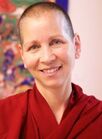
To Calm Your Mind in Stressful Times with Venerable Amy Miller
Click HERE
The loss of a job, a challenging relationship, or the threat of a pandemic; the circumstances of life can makes us feel like we are tossed in an endless sea. At times, they can even swell to the point of overwhelming us. However, the key to navigating such times lies within us already: our mind. By learning to calm our minds in stressful times we can reclaim our natural ability to transform our reactions in the face of stress.
Click HERE
The loss of a job, a challenging relationship, or the threat of a pandemic; the circumstances of life can makes us feel like we are tossed in an endless sea. At times, they can even swell to the point of overwhelming us. However, the key to navigating such times lies within us already: our mind. By learning to calm our minds in stressful times we can reclaim our natural ability to transform our reactions in the face of stress.

Combating Coronavirus Fear with Compassion with Scott Snibbe
Click HERE
With fear and anxiety mounting over the Coronavirus, we present a discussion and guided meditation counteracting fear with compassion. We’ll share the meditation technique of Taking and Giving (Tonglen) that soothes our own fear and anxiety through imagining how others are suffering just as we are, and sincerely wishing to help, to take away our own and others’ pain.
Click HERE
With fear and anxiety mounting over the Coronavirus, we present a discussion and guided meditation counteracting fear with compassion. We’ll share the meditation technique of Taking and Giving (Tonglen) that soothes our own fear and anxiety through imagining how others are suffering just as we are, and sincerely wishing to help, to take away our own and others’ pain.

This Precious Human Life Begins With Our Father with Lennie Kronisch
Click HERE
This precious human life is our greatest treasure, difficult to obtain and easy to lose. In this talk, we will honor all fathers --bio-, step, adoptive—and explore their fundamental role in bringing us into and caring for us in this precious life. Thanks, Dad!
Click HERE
This precious human life is our greatest treasure, difficult to obtain and easy to lose. In this talk, we will honor all fathers --bio-, step, adoptive—and explore their fundamental role in bringing us into and caring for us in this precious life. Thanks, Dad!
